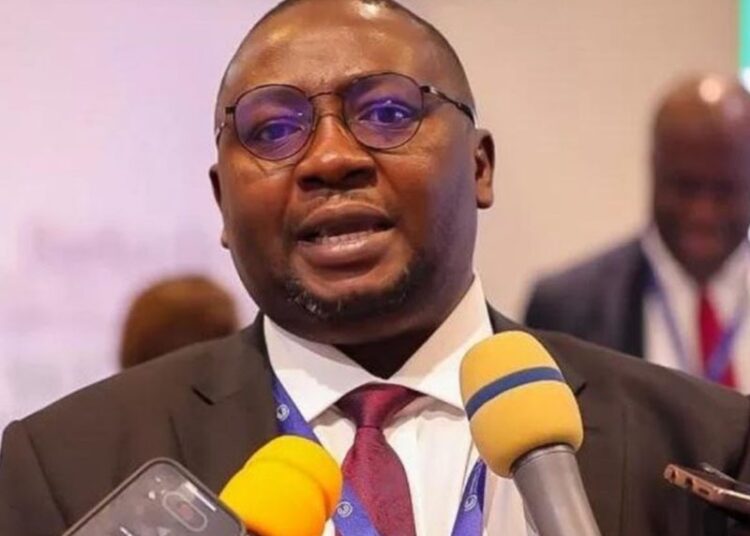The federal government has met with the power generation companies to finalise the implementation of the bond issuance to settle the N4 trillion legacy debts in the sector.
The special adviser to the President on Energy, Olu Verheijen, who made this known on Tuesday, said the meeting held on Tuesday, 7 October 2025, in Abuja, with the Minister of Finance and Coordinating Minister of the Economy, Wale Edun, the Minister of Power, Bayo Adelabu and senior executives of Nigeria’s electricity generation companies (GenCos) to review settlement modalities for the outstanding debt.
In a post on her verified X handle on Tuesday, Verheijen said, “The Federal government of Nigeria has taken a major step toward restoring financial stability and investor confidence in the electricity market with the finalisation of the implementation framework for the Presidential Power Sector Debt Reduction Plan.
The initiative, approved by President Bola Ahmed Tinubu, addresses structural bottlenecks and lays the groundwork for large-scale private sector-led investment and sustained economic growth.”
The liquidity crisis in the power sector has led to a massive accumulation of debt, with arrears owed to GenCos reportedly reaching over N5.6 trillion by late 2025. The GenCos said this debt burden has restricted their investment in capacity expansion or infrastructure modernisation, exacerbating power supply shortages and undermining investor confidence. Industry leaders have warned that without urgent government intervention, GenCos may be forced to shut down critical generating plants, threatening nationwide blackouts and further instability of the national grid.
According to her, the meeting concluded with a consensus on the way forward, which included conducting bilateral negotiations to finalise full and final settlement agreements that balanced fiscal realities with Gencos’ financial constraints.
Approved by President Tinubu and endorsed by the Federal Executive Council (FEC) in August 2025, the plan authorises the issuance of up to N4 trillion in government-backed bonds to settle verified arrears owed to generation companies and gas suppliers. This intervention, the largest in over a decade, addresses a legacy debt overhang that has constrained investment, weakened utility balance sheets, and hindered reliable power delivery across the country.
“For the first time in years, we are seeing a credible and systematic effort by the government to tackle the root liquidity challenges in the power sector,” said Tony Elumelu, Chairman of Heirs Holdings and Transcorp Power. “We commend President Tinubu and his economic team for this bold and transformative step.”
“Group managing director of @iamsaharagroup, Kola Adesina, echoed this sentiment: “This initiative is significant in every respect. It gives us renewed confidence in the reform process and a clear signal that the government is serious about building a sustainable power sector.”
The SA said that the debt reduction plan signals a strategic reset of Nigeria’s electricity market beyond clearing arrears. Restoring the financial health of power companies will enable new investment in generation capacity, modernise grid infrastructure, and deliver more reliable electricity to homes and businesses, creating a stronger foundation for industrialisation, job creation, and inclusive economic growth.
“Our focus is on creating the right conditions for investment, from modernising the grid and improving distribution to scaling embedded generation,” said @OluVerheijen, Special Adviser to the President on Energy. “By closing metering gaps, aligning tariffs with efficient costs, improving subsidy targeting to support the poor and vulnerable, and restoring regulatory trust, we are shifting from crisis response to sustained delivery and building the confidence needed to attract large-scale private capital.”“These reforms go beyond liquidity,” said Edun. “They are about rebuilding the fundamentals so Nigeria’s power sector works for investors, citizens, and the next generation. This is how we create the enabling conditions for sustained private investment and transform reliable power into a catalyst for economic growth.”
Complementary efforts to scale renewable energy, leverage domestic gas as a transition fuel, and build local technical and institutional capacity will position Nigeria for energy security and sovereignty, creating one of Africa’s most attractive power markets.
The Federal Ministry of Finance is jointly implementing the Presidential Power Sector Debt Reduction Plan, the Federal Ministry of Power, and the Office of the Special Adviser to the President on Energy, in collaboration with the Nigerian Bulk Electricity Trading (NBET) Plc and other key stakeholders.





